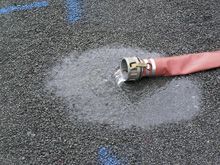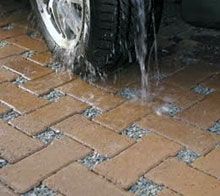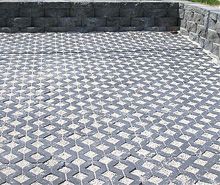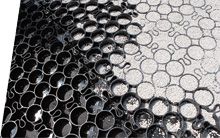Practice parking can be green
Cities are ordering businesses to stop dumping rain water into storm drains and help get it to the soil. Heres how your veterinary practice can make it happen.
Parking lots have a reputation for being eco-unfriendly, encouraging more cars on the road that put more pollution in the air and wiping out the green space we love and need. But at least one problem with parking lots-their tendency to keep rain water out of drought-stricken soil and whisk it right to the storm drain-is fixable. Your veterinary practice can help.
A combination of strict municipal stormwater rules and a desire to use more eco-friendly solutions has resulted in the development of "permeable pavements" as an alternative to traditional asphalt and concrete pavements. Permeable pavements allow water to pass through voids in the paving surface to the gravel and soil base below as opposed to collecting the water on the surface of the pavement and guiding it by either surface flow or below ground pipes to a municipal system or retention pond. In essence, permeable systems use the soil's ability to absorb the water as the retention basin.

Porous asphalt (Photo courtesy Wayne Usiak)

Modular pavers (Photo courtesy Wayne Usiak)

Concrete lattice blocks (Photo courtesy Wayne Usiak)

Plastic grid systems (Photo courtesy Wayne Usiak)What's available
Porous asphalt uses only large pieces in the asphalt mix that form voids to make room for water to get to the soil.
Modular pavers are concrete pavers that, when assembled, leave voids for water.
Concrete lattice blocks form "waffle grids" in a lattice grid of concrete ribs that can support the weight of cars. The voids inside the tic-tac-toe structure are filled with angular gravel or soil and grass to allow stormwater to filter through.
Plastic grid systems use high-strength, interlocking panels that is then gravel-filled to create a drive-able, porous surface kept in shape by the grid.
Make the smart choice
Pros:
• No retention pond or stormwater piping system
• Cooler surface in hot climate
• Gravel or soil below acts as a natural bio filter
Cons:
• Spaces in some systems may clog, preventing percolation of surface water
• Not as many installers as traditional paving contractors
• Can cost more than traditional paving
Long story short: Check your municipal code, your soil and your budget, and make the right choice for your veterinary clinic.
Wayne Usiak is a senior partner at BDA Architecture in Albuquerque, New Mexico.